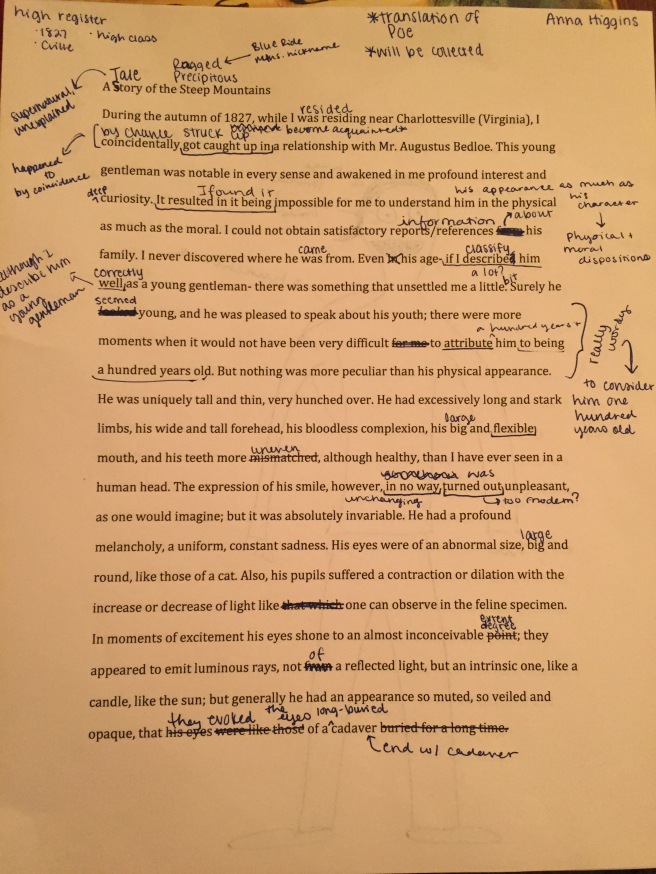Después de haber tomado este curso, creo que mi idea de qué es la traducción ha cambiado por las metáforas y comparaciones que hemos aprendido. Las dos ideas en que he pensado más son que la traducción es una ciencia y un arte y la metáfora del río.
La primera idea, que nos enseñó Gustavo Pellón, me interesa mucho porque involucra el proceso de traducir y como hacerlo. Creo que la traducción es las dos porque hay un proceso de como hacerlo– entender el texto, buscar todos los significados de las palabras, y examinar las estructuras de la obra. Pero, también me gusta la idea de que es un arte porque la traducción requiere un nivel de entendimiento cultural, histórica, y literaria; todos eses entendimientos contribuyen a replicar la obra en una lengua diferente lo más bien que se puede.
La segunda idea, que traducir es como cruzar un río al lector, es fascinante porque involucra la idea de para quién traducimos más que la primera. Introduce el concepto de traducir como algo menos personal y más público, y me hace cuestionar porque traduzco. Además, introduce las consecuencias de traducir en maneras diferentes; por decidir traducir para mantener la más fidelidad a la obra es más trabajo para el lector mientras es más cerca al original, pero cambiar la obra mucho es más trabajo para el traductor mientras no mantiene la fidelidad a la obra.
Con ambas ideas, tengo una idea más clara de porque traducir para mi misma, pero también para el público.


